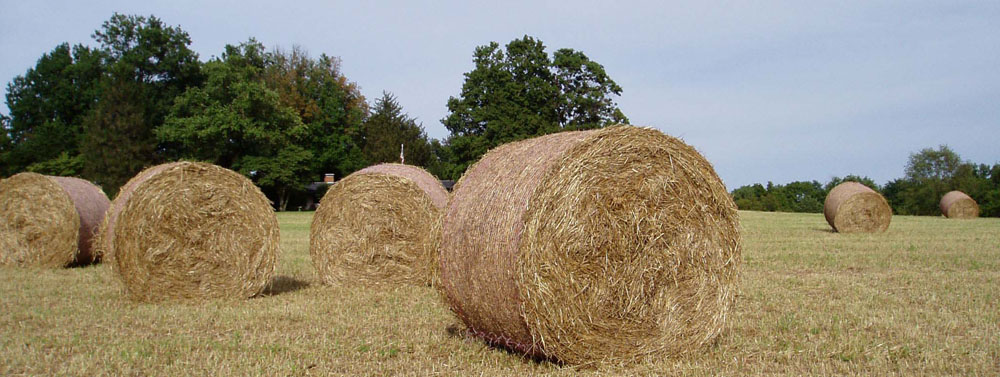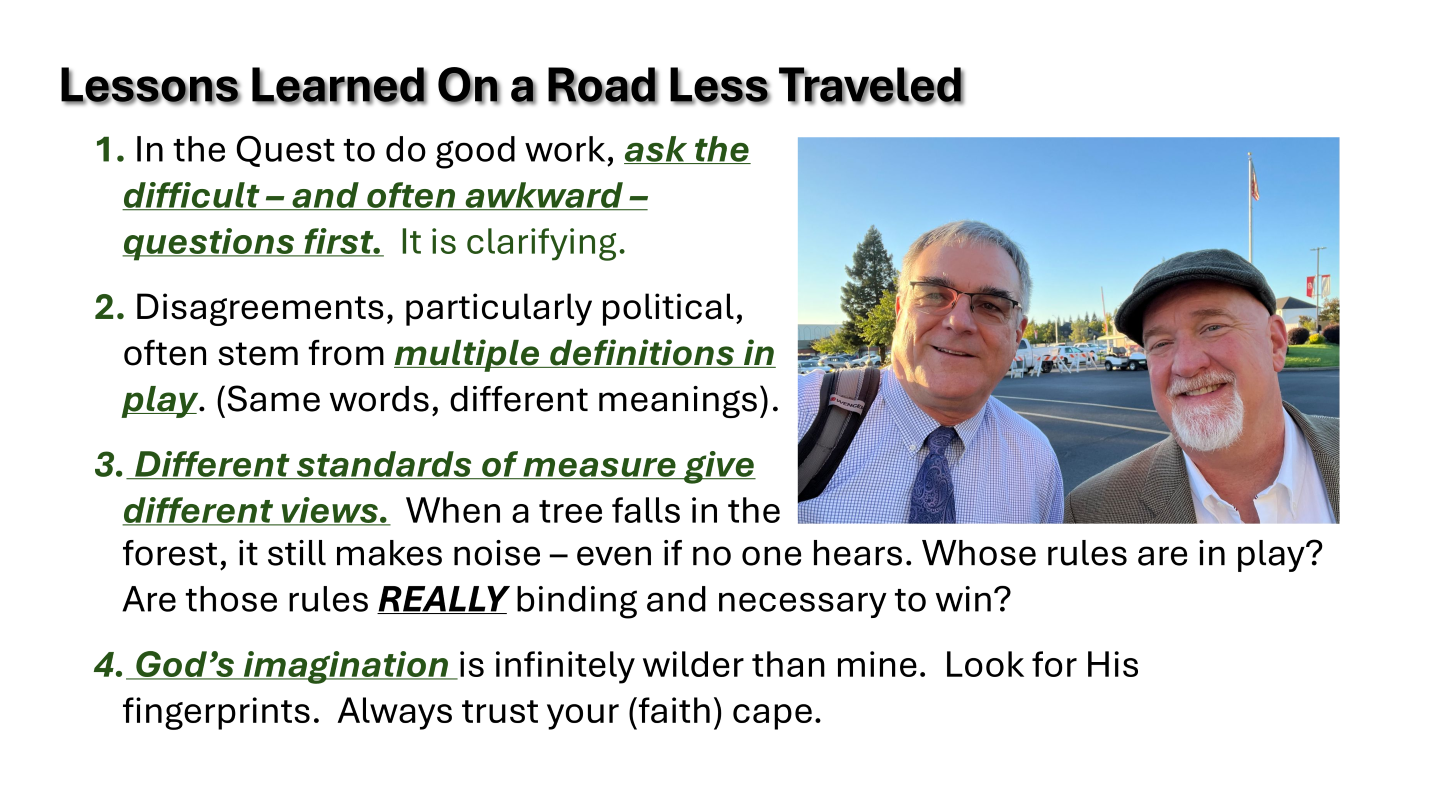Lessons of Living Shared with Simpson University Macroeconomic Students
I really enjoyed spending a recent class period with macroeconomic students at Simpson University in Redding, California. Simpson is a private, faith-based college similar to Greenville University where I taught for eight years. One constant over my 45-year career, is that I am most certainly an economist. I am grateful for the invitation to participate from Simpson President, Norm Hall (pictured), Business Department Chair, Dan Sloan, and economist, Dr. Ben Omwando.
Economic theory is not unlike the English language. There are defined rules with many, many exceptions to those rules. In truth, both in economics and English, the exceptions are actually the rules. To become a PhD economist, I first had to learn all the rules and how they originated. The economy does not stop, ever. So discovery of economic theory happens in chaos.
To establish the economic rules, simplifying assumptions are employed. One not unreasonable assumption is one of availability of perfect information. It is based on an ideal of everything was operating optimally. With today’s datasets and decades of historical data these perfect information assumptions work well. Economists still find Adam Smith’s, 1776, Wealth of Nations still worthy of referencing.
Where the established laws of economics work less well, are on the emerging frontiers. This has been the canvas of a career in biomass market development. We trust our science-derived theories but in the case of emerging economic frontiers, this does not work. Fortuitously, the Nobel Prize for economics was given to three economists, Joel Mokyr, Philippe Aghion and Peter Howitt, that pioneered the role played by innovation and creative Destruction. Doing things with fewer inputs (innovation) and tearing down assets that may still have some life remaining (creative destruction). Six of the ten Mark Jenner ‘careers’ involved executing work that filled roles newly created to fill traditional gaps, innovating while shifting away from traditional asset utilization.
This is the focus of what was discussed with the Simpson University economic students last week. The Nobel Economic Prize had not been awarded at that time. It was simply lessons learned on a road less traveled. The one unusual caveat is that Simpson University, like Greenville University, are intentionally faithed based and Christian universities. In the case of agribusiness programs, this was an advantage as production agriculture is a faith-based industry. If preparing young professionals academically to serve in US agriculture, it is a competitive advantage to think like the customers. The last point made to the students is related to trusting one’s faith.
Mark Jenner’s Lessons Learned from a Road Less Traveled
- Asking difficult, and often not very sophisticated, questions early and often is clarifying. While maintaining professional acumen, ask the questions no one else is asking. What happens when the traditional assumptions are relaxed? This may be awkward and will frustrate your teammates. But incumbent stakeholders often expect the new guy not to be very smart. Use that to your benefit! It is far more costly to ask seminal questions later in the process. Ask the clarifying questions early and often.
- There are nearly always multiple definitions in play for the same word. This is one reason political debates seem to never end. Different sides argue passionately for their position on say, manure, while they are all using different definitions for the term in question. Therefore, they are talking about two completely different things while using a common term. In the case of agribusiness, there are multiple, official and unofficial definitions. In the extreme, a case can be made that the working definitions of agribusiness differ by as many people who are in the discussion. The problem is not that there is no definition, but that there are too many different definitions in play.
- There are multiple, conflicting active frameworks. There is always one predominate set of governing rules in play in any industry or market. Is it the correct one? What others are available? In the 1990s, US fish farmers predominantly fell under the wildlife laws even when the fish were on private property. The American Farm Bureau Federation led by brilliant fish farming members quietly led to changes in the USDA enabling statutes that allowed the wildlife laws to protect wildlife, while allowing fish farm businesses to be served by USDA. It was a more comprehensive ‘Yes, and’ solution. Manure rules require nutrient sampling of manure stocks, but fertilizer laws require a guaranteed analysis where penalties are levied for nutrients that do not meet the labeled quantities. The laws for discharging emissions (like methane) are not the same for marketed products (natural gas). Even though the market value in natural gas is derived from methane (CH4). Beware and manage different frameworks.
- Finally, have faith in the larger mission! My journey began with a quiet commitment to be where God has called me. I will never be famous for changing the world, but I have watched my influence make small lasting differences over and over again. It has been a privilege. Often a lonely privilege. Many of my careers began when someone looking for my very uncommon skillset realized that I was available. The demand for my skillset was sufficient to fuel a career of swooping in and starting new programs that required those skills. The song, The Cape, by Guy Clark, is about an individual that spent his entire life jumping off a roof with a flour sack cape tied around his neck. The last stanza includes the line, “He did not know he could not fly, and so he did.” For me my cape has been my divine faith. I have quietly changed the world for countless individuals in each of my uncommon careers. Trust your cape.
As the day began at Simpson University last week (photo with President Hall), we were all excited, but also uncertain of what the outcome might look like. It was a slice of all four lessons. The stakeholders all came from different backgrounds in administration, faculty, and industry perspectives, even geographic views. We asked lots of questions, aligned multiple definitions for the same terms, compared academic and industry standards of performance and in the end, all gained because we all placed our faith in success as established professionals and we trusted our capes.



Comments
Lessons of Living Shared with Simpson University Macroeconomic Students — No Comments
HTML tags allowed in your comment: <a href="" title=""> <abbr title=""> <acronym title=""> <b> <blockquote cite=""> <cite> <code> <del datetime=""> <em> <i> <q cite=""> <s> <strike> <strong>